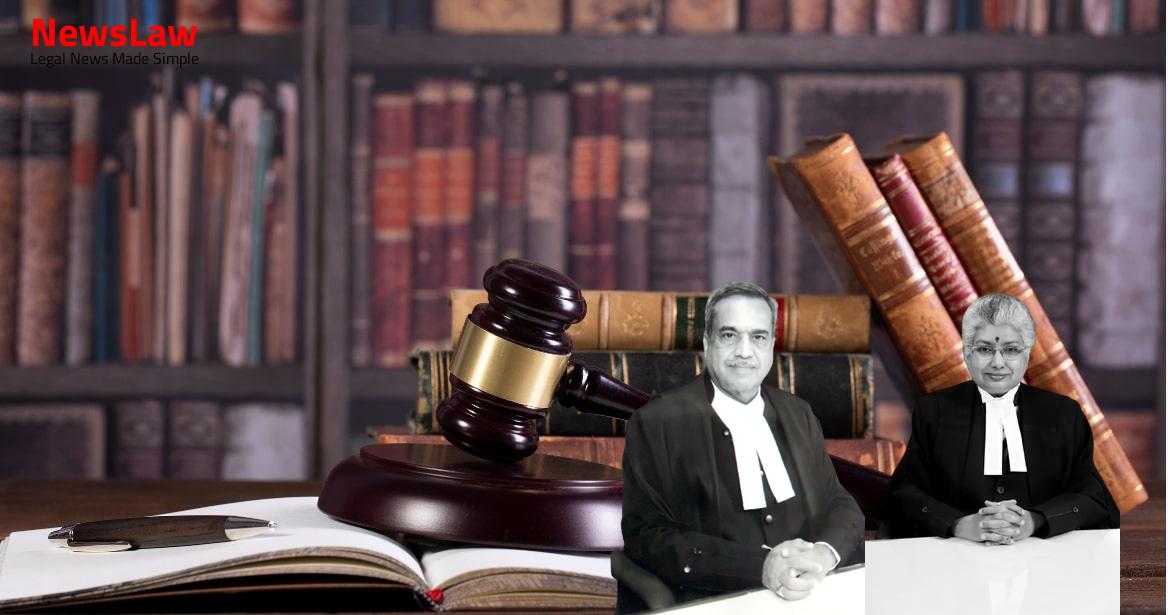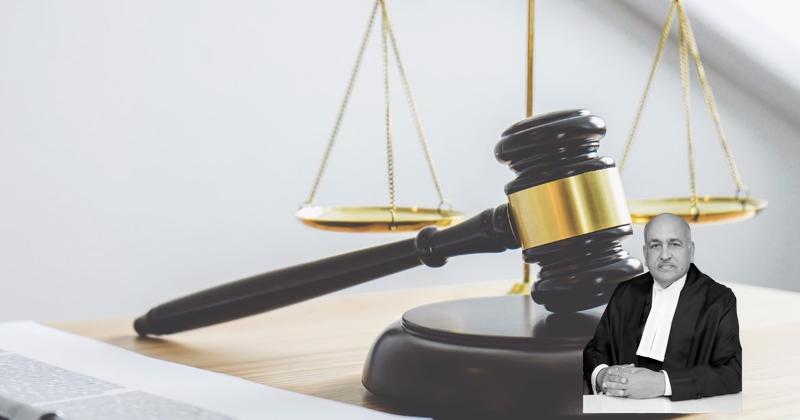In a recent landmark judgment by the Supreme Court of India, the case of R.Y. Raval vs. State of Gujarat has brought attention to the critical issue of upholding individual liberty and following correct legal procedures. The court’s decision in this case sets a precedent for ensuring justice and fairness in legal proceedings, emphasizing the foundational principles of the legal system.
Facts
- The petitioner approached the Court with a contempt petition alleging wilful disobedience of the Court’s order dated 8 December 2023 by the respondents.
- The petitioner had filed a complaint against the respondents for alleged torture and pressure to compromise the matter.
- The ACJM rejected the complaint without recording the statements of the complainant and witnesses as mandated by law.
- The Commissioner of Police tendered an unconditional apology for any alleged actions contributing to contempt of the Court’s order.
- The ACJM proceeded in a pre-determined manner and rejected the complaint without following the correct procedures.
- The High Court set aside the ACJM’s order in a revision petition filed by the petitioner.
- Verifications and inconsistencies in statements were noted in the investigation.
- Police custody remand was granted despite objections based on the Court’s order for interim protection.
- The High Court found the ACJM’s actions to be illegal and improper in rejecting the complaint without recording witness statements.
- The ACJM’s dismissal of the complaint was deemed improper and perverse.
- The High Court of Gujarat was impleaded in the matter on 29 January, 2024.
- The ACJM’s order rejecting the complaint was reversed by the High Court on 22 February, 2024.
- The Magistrate’s legal error in ignoring CrPC provisions was noted by the High Court.
- Petitioner lodged a complaint to the Commissioner of Police, Surat on 20 December, 2023.
- No action was taken on the complaint until this Court initiated cognizance of the contempt proceedings.
- CCTV cameras at Vesu Police Station were non-functional as admitted by the Commissioner of Police, Surat.
- A complaint u/s 420, 120[b] of Indian Penal Code was filed against 7 accused in Vesu Police Station on 21/7/2023.
- Investigating Officer arrested and then released the petitioner on bail on 8 December, 2023.
- Notices under CrPC requiring presence at the police station and the Court of ACJM were served to the petitioner.
- The notice dated 12 December, 2023 mentioned a complaint with a maximum sentence of seven years.
Also Read: Supreme Court Judgement on Bail Application in CBI and ED Cases
Arguments
- Mr. K. Parameshwar, representing Shri R.Y. Raval, argued that there was no intention to disobey the Court’s order.
- The maximum punishment in the present matter is seven years, as per the Satender Antil versus CBI case.
- The remand application cannot be granted mechanically.
- Contemnor-respondent Nos. 1 and 6 did not file affidavits or contest the proceedings significantly.
- CCTV cameras at Vesu Police Station had a DVR storage problem since November 2023.
- The argument about the long-standing practice of police custody remand after anticipatory bail was not accepted.
- Additional submissions were made by Shri S.V. Raju and Shri R. Basant to clarify the prevailing practice in Gujarat regarding anticipatory bail orders.
- Mr. Ray mentioned that ACJM(contemnor-respondent No 7) was deluded by the prevailing practice when passing the order of police custody remand.
- Ms. Bhati, implored the Court to accept the unconditional apology filed on behalf of contemnor-respondent No.3.
- Petitioner was kept in illegal custody for more than 48 hours in violation of the court’s order.
- The Investigating Officer sought police custody remand despite the petitioner already being granted bail.
- The Investigating Officer did not have the liberty to seek police custody remand of the petitioner while under anticipatory bail.
- The petitioner was released after a delay of nearly 48 hours from the end of the police custody remand period.
- The Commissioner of Police and other contemnors submitted unconditional apologies for any unintentional disobedience.
- The petitioner faced biased and prejudiced treatment by the judiciary, leading to prolonged custody.
- The Police Inspector’s actions in seeking police custody remand were portrayed as bona fide and essential for a fair investigation.
- The Investigating Officer’s request for police custody remand was deemed justified despite the petitioner’s alleged non-cooperation.
- The actions of the Magistrate granting police custody remand were questioned in the context of the court’s orders.
- The court was urged to discharge the contempt notice against the Commissioner of Police.
Also Read: Supreme Court Judgment: Compensation and Interest Dispute between Buyers and Developer
Analysis
- The accused-petitioner appeared before the Investigating Officer immediately upon being summoned with the copy of the order under contempt.
- During the period between 16th to 18th December, 2023, the accused was illegally detained for nearly 48 hours.
- The physical condition and cleanliness of the accused during remand indicate that he was kept in good condition and provided with clean clothes.
- The complaint of being beaten with a belt is contradicted by the condition of the accused’s clothes and physical appearance.
- The arrest and subsequent remand of the accused were based on allegations that appeared to be in relation to a civil dispute.
- The Investigating Officer sought police custody remand of the accused based on a perception arising from prevailing practices in Gujarat.
- The accused had already furnished bail bonds pursuant to a court order before being remanded to police custody.
- The application for remand and subsequent actions by the Magistrate were in defiance of the court’s order and constituted contempt.
- The Contemnors tried to justify their actions by citing cooperation issues and misunderstanding the court’s order.
- The accused was released on bail after the remand period ended, further indicating the erroneous actions taken during the remand.
- The actions of the Contemnors were found to be biased and high-handed, contributing to the illegal detention of the accused.
- The Contemnors were held guilty of committing contempt of the court’s order.
- The court’s orders for anticipatory bail were made absolute, and the special leave petitions were disposed of.
- CCTV footage issues and deficiencies in the investigation process were also highlighted during the analysis.
- There has been a significant increase in property-related offences, with builders being involved in many cases.
- In the current case, a deal involving 15 shops has led to a compensation payment of Rs. 1,65,00,000/-.
- Thorough investigation of the offence is necessary to validate the reasons presented in the remand application.
- Courts in Gujarat routinely impose restrictive conditions in anticipatory bail applications allowing Investigating Officers blanket permission to seek police custody remand of the accused
- This practice is against the Constitution Bench judgment in the Sushila Agarwal case
- The Division Bench judgment of the Gujarat High Court in the Sunilbhai Sudhirbhai Kothari case is overruled as it contradicts the Sushila Agarwal case
- The court granting anticipatory bail should consider factors like the nature of the offense, role of the person, likelihood of influencing the investigation or tampering with evidence
- Special or restrictive conditions in anticipatory bail cases should not be imposed routinely but on a case-by-case basis depending on the materials produced by the State or investigating agency
- Article 21 of the Constitution highlights the importance of individual liberty, which was a hard-won right after historical struggles
Also Read: Examination of Jurisdiction: State of Bihar vs. Union of India Case
Case Title: TUSHARBHAI RAJNIKANTBHAI SHAH Vs. STATE OF GUJARAT (2024 INSC 588)
Case Number: SLP(Crl) No.-014489 – 2023



